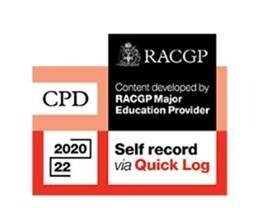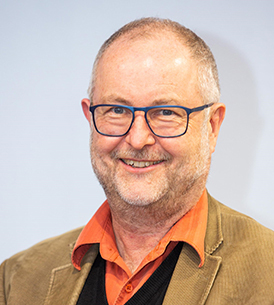Webinar
Opioid prescribing: strategies for GPs to optimise chronic non-cancer pain management and minimise harms
Watch our panel of chronic pain experts as they discuss evidence-based approaches for managing chronic non-cancer pain and how GPs can implement these to reduce opioid-related harms.
-
Cost: Free

This webinar has been developed with funding from the Therapeutic Goods Administration, Australian Government Department of Health.
This webinar has been developed in collaboration with ACRRM, RACGP and RDAA.

Accreditation
ACRRM:
It is recommended that 1 CPD hour be recorded for the purposes of self-directed CPD.
RACGP:
It is recommended that 1 CPD hour be recorded for the purposes of self-directed CPD.

It is recommended that 1 CPD hour be recorded for the purposes of self-directed CPD.
It is recommended that 1 CPD hour be recorded for the purposes of self-directed CPD.
About
Discussion points for this webinar are based on feedback from over 450 GPs who completed our health professional survey on what they wanted to know about the recent reforms to prescribing of opioid medicines.
The panel will cover three key themes that were identified as important:
- Considerations when trialling opioids for chronic non-cancer pain
- How to identify patients at increased risk of harm, and strategies for minimising harm
- Appropriate strategies and practical ways to support patients during the opioid tapering process
Following a 1-hour presentation and discussion, panel members will be available for a further 30-minute live Q&A session with webinar participants.
Meet the panel
This webinar brings together a panel of top Australian experts who specialise in the areas of chronic pain management and opioid dependence.

Dr Milana Votrubec (facilitator)
Dr Milana Votrubec, general practitioner and pain management consultant in Mosman, Sydney, is a Fellow of RACGP and the Faculty of Pain Medicine, ANZCA.
Milana holds a senior position as a clinical tutor for the Graduate Medical Programs at Notre Dame University and is an Honorary Consultant to the journal Medicine Today. She is an elected Member of the NSW Faculty of Pain Medicine Regional Committee and is an examiner for this Faculty. Milana is the current Chair of the RACGP Specific Interests Network for Pain Management.

A/Prof Malcolm Hogg
A/Prof Hogg is a past-President of the Australian Pain Society and current board member of Painaustralia. He has advised on the development of the National Strategic Action Plan for Pain Management and contributed to the development of the National Pain Service directory.
Current activity includes membership of government committees on opioid monitoring (SafeScript), and work in the development of models of care for pain services.
At Royal Melbourne Hospital, Dr Hogg supervises a coordinated range of services, linking inpatient acute and interventional pain management with outpatient multidisciplinary services. This includes management strategies for chronic cancer and non-cancer pain and telehealth-linked support to clinicians in western Victoria. Research activity includes early identification and management of people with acute pain at risk of developing chronic disabling pain, opioid and paracetamol pharmacology, and the use of ketamine to reduce persistent pain.

Dr Simon Holliday
Dr Simon Holliday has been a rural general practitioner in NSW for three decades and a part-time staff specialist for the Drug and Alcohol Clinical Services of the Hunter New England Local Health District at Manning Hospital, Taree. He is immediate past chair of the RACGP Specific Interests Network for Pain Management and a Conjoint Lecturer, School of Medicine and Public Health, University of Newcastle.
Simon has been principal author and/or collaborator on several opinion pieces and research studies on the management of pain, addiction and psychoactive pharmaceuticals in general practice, and the evaluation of such education for GPs.

Dr Hester Wilson
A Fellow of RACGP and a Fellow of the Chapter of Addiction Medicine in the RACP, Dr Wilson completed her Masters in Mental Health in 2013. She has worked in primary health care settings for the last 25 years.
With many years of working with people experiencing alcohol and other drug issues, Hester has a particular interest in opioids and prescription opioid use disorder. Currently undertaking a PhD, she works in general practice in Newtown, Sydney and is a staff specialist in addiction medicine in South East Sydney Local Health District.
Learning outcomes
By the end of this activity, participants will be able to:
- Identify patients with risk factors and implement strategies to reduce opioid-related harms
- Recommend appropriate strategies and support patients during the opioid tapering process to increase the chance of success
- Identify and refer patients with complex needs to appropriate support services
Reading & resources
Webinar slides
Regulatory changes
- RADAR articles: Opioids: New and amended PBS listings and Additional changes for PBS listed opioids
Non-pharmacological treatments
- MedicineWise News: If not opioids, then what? – focuses on non-pharmacological treatment options for chronic non-cancer pain
Tapering
- Tapering algorithm – outlines the framework and principles for tapering opioids
- MedicineWise News: 5 steps to tapering opioids – focuses on safe tapering of opioids and provides commentary on the tapering algorithm
- Conversation starters – useful verbatims for health professionals to start the conversation about tapering with patients
- Patient action plan: Lowering your opioid dose – GP-mediated resource that aims to facilitate a discussion about the possible benefits of tapering, what’s involved in the process and help doctors and patients agree a planned approach
- Communication videos – aim to support effective conversations between health professionals and patients about the use of opioids for the management of chronic non-cancer pain
- Faculty of Pain Medicine ANZACA: Opioids calculator
- TGA: Clinician information sheet on opioid analgesic tapering (summary version)
- Victoria Health: Opioid Risk Tool
- ACI Pain Management Network: Assessment tools and Quick steps through opioid management
- Modified Örebro Musculoskeletal Pain Screening Questionnaire
Additional information and support
- RADAR article: Use of naloxone for acute opioid overdose
- Hunter Integrated Pain Service
- ACRRM: Reducing opioid harm in rural and remote Australia
- Australian Pain Society: National directory of pain treatment facilities
- Australian Prevention Partnership Centre: list of chronic pain initiatives
- National Drug and Alcohol Research Centre (NDARC): List of state-based drug information services
- Painaustralia: list of pain services and programs
- Drug and Alcohol Clinical Advisory Service
VIC – 1800 812 804
TAS – 1800 630 093
NT – 1800 111 092
QLD – 1800 290 928
WA – (08) 6553 0520
NSW – 1800 250 015
SA – (08) 7087 1742
Training and online CPD activities
- Clinical e-Audit – allows GPs to review their prescribing of opioids for patients with chronic non-cancer pain, with a focus on tapering opioids
- Faculty of Pain Medicine ANZCA: Talking pain modules (PSA/SHPA)
Consumer resources
- Choosing Wisely consumer resource: Managing pain and opioid medicines and 5 questions to ask about using opioids for osteoarthritis or back pain – designed to encourage patients to ask questions about their medicine
- Opioids information video – helps consumers make informed decisions in partnership with their doctors about whether to start taking an opioid medicine for chronic (ongoing) non-cancer pain
- Easy-to-read information about opioids and chronic pain
- Opioid prescribing changes – improving safety, reducing harm
- Opioid medicines and chronic non-cancer pain
- Chronic pain explained
- Pain: what is going on?
- Medicines for pain relief: what are the options?
- Nerve pain explained
- MedicineWise app – provides consumers and carers with information about their medicines
- TGA: Prescription opioids: Information for consumers, patients and carers
- Pain Management Network (ACI NSW) – video on pain and the role of medications
- Centre for Clinical Interventions: Psychological self-management handouts
- Information on Activity pacing, Activity and rest diary, sleep diary,
